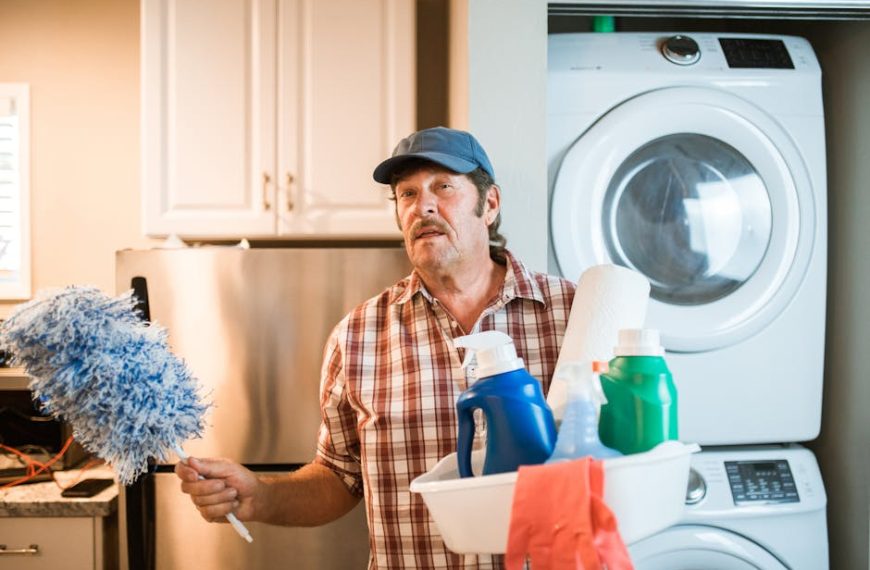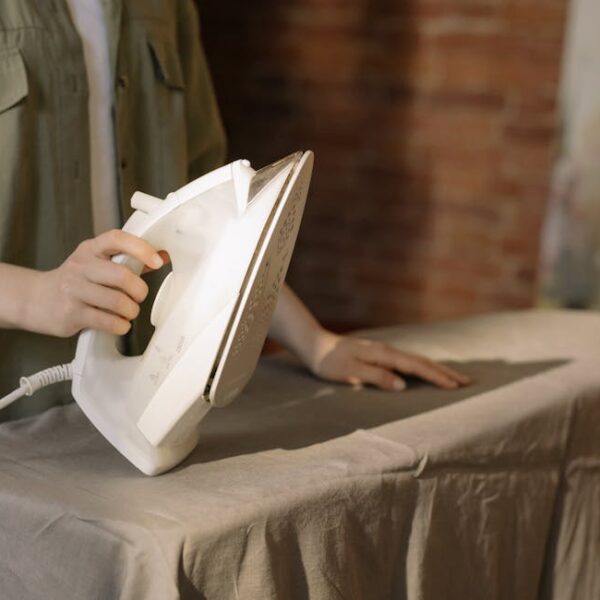In life, we often find ourselves in situations where we must broach sensitive subjects with others. A loved one’s housekeeping habits may be one such topic. It’s crucial to remember that this is a delicate matter – their domicile is their sanctuary, their own space – and respect must be shown. Rendered the wrong way, your well-intentioned advice might project as an offensive criticism. Hence, addressing such concerns requires tact and empathy.
Before having the conversation, it is important to assess the situation. Is the person’s home simply cluttered or is it genuinely unclean? There’s a fine line between the two and it’s vital to distinguish this before you proceed. Similarly, evaluate your relationship with the person and question if you indeed have the standing to comment on their cleanliness.
When the time is right, talk. Let it be quiet, calm, and private, free of unwarranted distractions. Falling into the trap of judgment or criticism is easy; instead, try being supportive, understanding the root cause instead of making surface assumptions.
Choosing Your Words Carefully
Expressing concern about the cleanliness of someone’s home without offending them can be a balancing act. It is how you frame your conversation that sets the tone. In doing so, opt for the use of I over you statements. By expressing your feelings instead of pointing fingers, you make sure the person does not feel targeted or blamed.
Prepare yourself prior to the conversation by rehearsing what you are going to say to ensure you deliver your message with the right intent and emotions. Show them respect – their space is a direct indication of their sense of self, and intruding on it requires a conscious handling.
Neutral communication focuses on the positive and tangible benefits of a clean house. Instead of pointing out the negative aspects of dirtiness, emphasize the feel-good factors that come from living in a clean, organized space.
Providing Constructive Solutions
Guidance should often be coupled with viable solutions. When discussing cleanliness, offer advice or share tips and tricks that you’ve learned along the way. A regular cleaning schedule can help them keep on track; investing in quality cleaning supplies and tools can make the task less daunting.
If the person’s home is considerably unclean, advise them to consider a declutter, which could involve donating or selling items they no longer find useful. Reorganizing could help open up additional spaces in their home and present them with the incentive they need to maintain its cleanliness.
In some cases, you could weigh the pros and cons of DIY cleaning versus hiring professional cleaners. The decision would depend on the person’s lifestyle, budget, and their willingness to invest time and effort into cleaning.
Is There a Best Time to Ask Someone to Clean Their House After They’ve Done Laundry?
Timing is crucial when asking someone to clean their house after doing laundry. Consider their mood and recent tasks. A gentle approach can make the conversation easier. Remember, if you’re looking to maintain a good relationship, also offer tips on how to care for your billabong tshirt to show you care.
Offering Help Rather than Criticism
Remember, the objective of the conversation is not to criticize, but to assist the person in realizing their own potential to change. Offer to help – whether it’s by assisting them during an initial cleanup, or connecting them with professional services, that will serve as a promising start.
Your approach should reassure them that difficulties with maintaining cleanliness at home are common. Validate their feelings — if they express that they are overwhelmed, reassure them that they are not alone and that it’s okay to ask for help. Patience and understanding are key here – real change takes time and habitual commitment.
Disguising criticism as advice can often lead to a sense of confusion and distress. Be as honest and genuine as possible. People recognize and appreciate authenticity, and definitely deserve it.
Consistent Encouragement and Follow-up
It’s one thing to help someone clean or motivate them to adopt better habits, but to ensure lasting change, consistency in providing encouragement is critical. Keep in mind that your support shouldn’t come across as nagging or patronizing, but as a friendly reminder that they’ve got someone in their corner rooting for them.
Emphasize the progress made rather than highlighting what’s left to do. Positive feedback encourages continued effort and serves as a powerful motivator. Remember to offer continuous support, reassurance, and motivation – these are catalysts for long-term change.
Don’t rush things or bombard them with multiple points of improvement all at once. Allow them to process changes and implement them at their pace. Patience is crucial in this journey – achieving a permanently clean home won’t happen overnight. It requires building new habits, which takes time and repeated practice.
In conclusion, approaching someone about their house cleanliness is a delicate process that requires empathy, careful wording, practical solutions, supportive assistance, and sustained encouragement. Being sensitive to their feelings and addressing the issue with tact can help ensure your conversation is effective and that you continue to maintain a good relationship with them.
Key Takeaways
Here are the key points to keep in mind when broaching the topic of cleanliness:
– Assess the situation and your relationship with the person before starting the conversation.
– Choose a quiet, calm time to talk, and frame it as a discussion rather than a confrontation.
– Focus on I statements and emphasize the positive aspects of a clean home.
– Provide practical cleaning tips and the option of professional help, if appropriate.
– Offer assistance and validate their feelings of being overwhelmed.
– Consistently encourage them, provide follow-up support, and commend progress.
And always remember: change is a process, not an event, and patience is key.
FAQs
Q: What if the person takes my advice negatively even if I approach the topic with empathy and patience?
A: Change can be challenging and sometimes people may react defensively out of fear or discomfort. Remember to stay calm and understanding, reiterating your intentions are out of care and concern. If the person is not receptive, give them some time and space to process the information.
Q: Why should I avoid using you statements when discussing the topic?
A: You statements can often sound accusatory or blaming, which might put the person on the defensive. Instead, use I statements to express your concern in a non-confrontational manner. This approach helps to maintain a friendly, respectful tone throughout the conversation.
Q: Should I offer to clean their house for them?
A: It can be beneficial to initially help them with cleaning, but the long-term goal should be to encourage and empower them to maintain cleanliness on their own. Offering to help might be a supportive gesture to start the process, but it’s important not to create dependency.
Q: How can I maintain consistent follow-ups without sounding like I’m nagging?
A: Consistent encouragement and positive reinforcement are key. However, try to avoid bombarding them. Recognize their progress, no matter how small, and let them know you appreciate their efforts. This way, your reminders will feel more like support rather than criticism.
Q: What if they’re not ready to make a change?
A: Everyone’s readiness to change varies, and it’s not something you can force. If they’re not ready, be supportive and loving. Reassure them that when they feel ready to make the change, you’ll be there to help.
Remember that open communication is essential, and the journey towards change is a shared one. Apply these tips, and you’ll navigate this sensitive topic with grace and empathy. Feel free to share this article and explore more related posts on our website.












